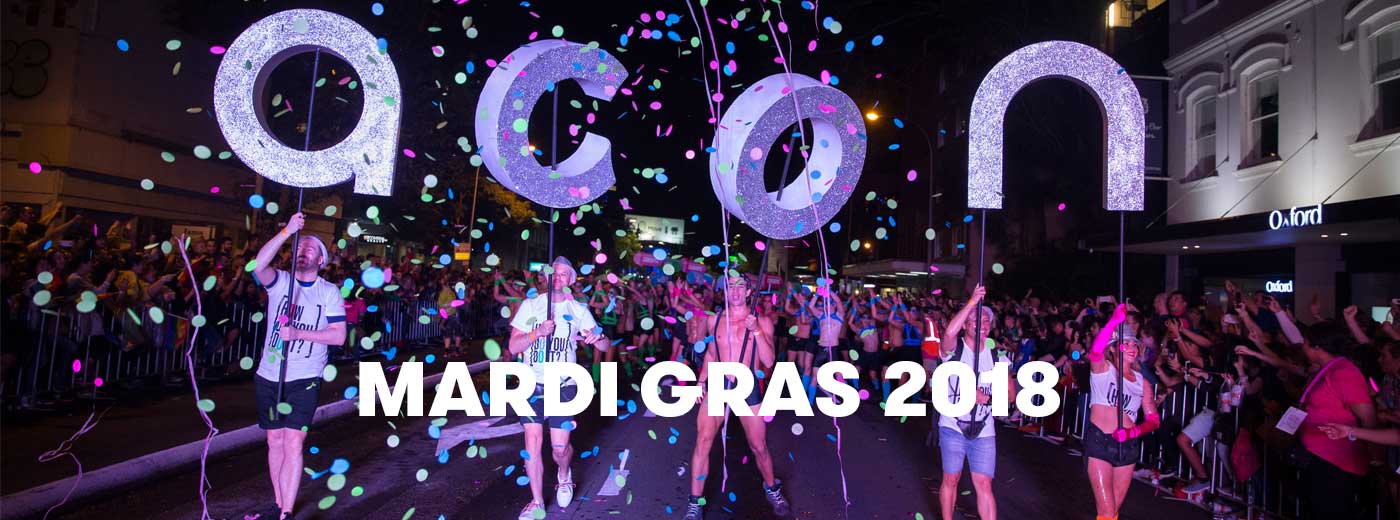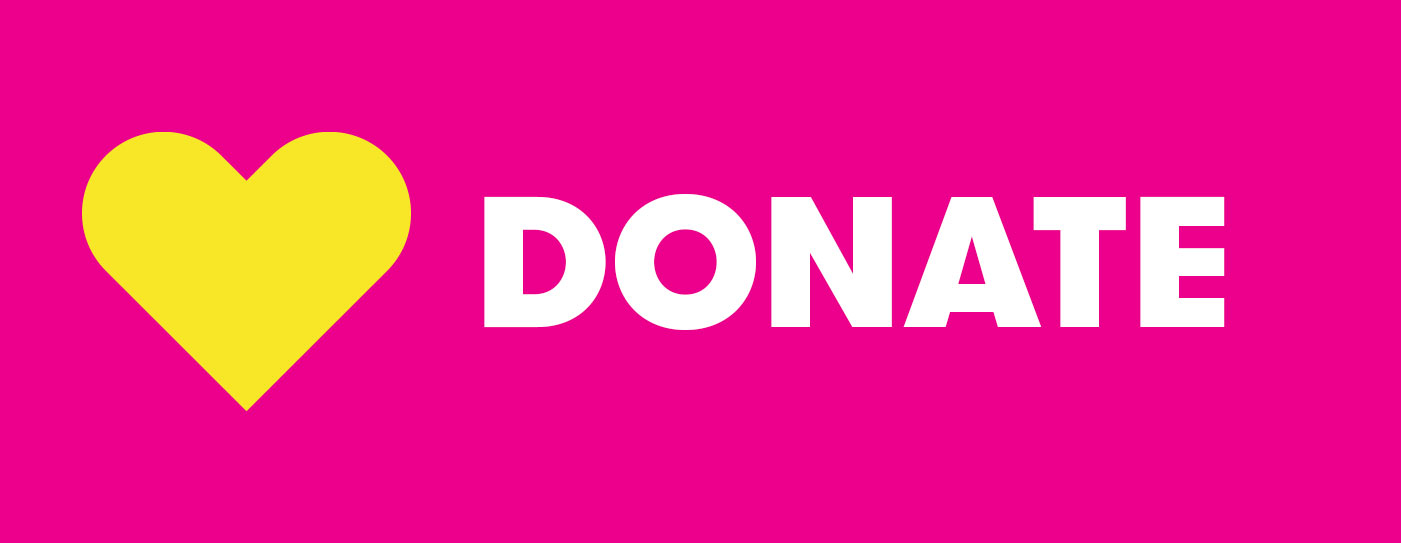As Sydney prepares to celebrate the 40th anniversary of the Sydney Gay and Lesbian Mardi Gras, HIV and LGBTI health advocates are encouraging revellers to look after themselves and their mates during the party season, especially in relation to HIV, sexual health, alcohol and other drugs, and street safety.
ACON – NSW’s leading HIV prevention, HIV support and LGBTI health organisation – says an important part of Mardi Gras season is about ensuring health and safety is front of mind, whilst enjoying everything it has to offer.
“The Sydney Gay and Lesbian Mardi Gras is all about celebrating our communities and having a great time doing it,” ACON CEO Nicolas Parkhill said. “Playing safe will help partygoers have a much more enjoyable Mardi Gras experience.”
Mr Parkhill said ACON recommends a range of measures for a healthy, fun and safe Mardi Gras.
Practice Safe Sex – Now There Are 3 Ways To Do It!
Condoms play a vital role in preventing the transmission of HIV and other STIs, and with 60,000 free ACON condom packs at LGBTI venues and events during the Mardi Gras season, it’s the cheapest and easiest way to stay safe. “However, if a person is HIV negative, they can now take PrEP, an antiretroviral drug that prevents HIV negative people from becoming infected,” Mr Parkhill said. “And if a person is HIV positive, it’s now proven beyond doubt that HIV treatments can help reduce that person’s viral load to an undetectable level, making it almost impossible to transmit the virus. There’s no longer a one size fits all approach to safe sex. We can now choose from a range of strategies – condoms, PrEP or UVL – to maximise sexual pleasure while protecting ourselves and our partners from HIV.” To find out more visit www.endinghiv.org.au.
PEP – Act Quickly!
If you think you’ve been exposed to HIV, PEP may prevent you becoming infected – if you act quickly. “PEP (Post Exposure Prophylaxis) is a course of anti-HIV medications taken over a four week period, but needs to be started as soon as possible after exposure – within 72 hours. PEP is NOT a substitute for safe sex – using condoms is always the best prevention,” Mr Parkhill said. More information is available via the 24-hour PEP Hotline: 1800 737 669.
Get Tested – Know For Sure
ACON operates a permanent rapid HIV testing facility on Oxford Street, Darlinghurst along with services in Surry Hills, Newtown and Kings Cross. “Rapid testing provides results within 30 minutes. a[TEST] Oxford St is located at 167 Oxford St and operates between 11am – 7pm, Monday to Saturday. Just walk in or make an appointment by visiting www.atest.org.au. Knowing your HIV status means you can take action to look after your health and the health of your partners. And getting more gay men to test more often is the only way we can reach our goal of ending HIV transmission in NSW by the end of the decade, so I urge gay guys to get tested this Mardi Gras season.”
Alcohol and Drugs – Reduce Harm
Mr Parkhill said reducing the harms associated with alcohol and other drugs is also important. “There are often new drugs emerging or drugs that have different strengths. It’s important to know as much as you can about what you are taking. Mixing G and alcohol continues to be a key cause of overdose. It’s important to tell someone you trust what you’ve taken, and to get help immediately if it’s needed. Also, the ACON Rovers will be at all the major parties to help people experiencing any difficulties.” You can find more safety tips regarding alcohol and other drug use and advice about partying safely via ACON’s Pivot Point website: pivotpoint.org.au.
Cervical and Sexual Health Screening
In an effort to increase cervical screening participation by all LGBTI people with a cervix, ACON, in partnership with Family Planning NSW, now has a new testing facility, the Check OUT clinic. Mr Parkhill said that it is important that ACON offers everyone within our communities a safe and inclusive place to have cervical and STI screening done. “As we have learnt from our successful a[TEST] clinics, peer leadership can be beneficial as it may make some people feel more comfortable and less anxious when talking to a peer about cervical screening and sexual health. Our new Check OUT Clinic will be offering free* or low cost, confidential sexual health and cervical screening services for LGBTIQ people. Everybody needs access to appropriate and specialist services to make sure they are getting the best healthcare.” For more information on changes made to the Cervical Screening Test, the Inner Circle campaign and the Check OUT Clinic, visit www.theinnercircle.org.au.
Fair Play – Know Your Rights
“There will be significant police operations at selected Mardi Gras events, which will involve sniffer dogs and, in some cases, personal searches for drugs. If police want to search you, it’s best to cooperate and not show aggression as this behaviour has sometimes resulted in charges against people.” To help partygoers understand their legal rights during the Mardi Gras season, ACON, Mardi Gras and the Inner City Legal Centre support an initiative called Fair Play which involves volunteers being on hand at the Mardi Gras party to provide information on rights and legal support, offer emotional support and monitor police operations. Information about rights and safety is available on the Fair Play website: www.fair-play.org.au.
Street Safety – Report Violence
Mr Parkhill said keeping safe on the street is also key to having a great Mardi Gras. “To avoid homophobic and transphobic violence, we recommend partygoers travel to and from venues with friends, avoid responding to abusive behaviour as this can escalate violence and get to a safe place if they feel threatened. All violence and harassment should be reported to police for immediate action because if the types of violence are on the public record, then agencies such as ACON can lobby for improved security for our community.” Information on reporting violence to the police or to ACON is available on the ACON website: www.acon.org.au/what-we-are-here-for/safety-inclusion/
ENDS
*Services are free for Medicare eligible clients
For more information please contact:
David Alexander, ACON Media and Communications
E: dalexander@acon.org.au T: +61 (02) 9206 2044 M: +61 (0)428 477 042

